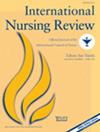Artificial Intelligence in Nursing Research: A Systematic Review of Applications, Benefits, and Challenges
Abstract
Background
Artificial intelligence (AI) is reshaping healthcare, yet its role in nursing research remains underexplored. Clarifying its applications, benefits, and challenges is essential to advancing nursing science in the digital era.
Objective
To synthesize published evidence, including empirical studies and expert perspectives on the applications, benefits, and challenges of AI in nursing research.
Methods
This systematic review followed PRISMA guidelines. A comprehensive search was conducted across five databases, including PubMed, Medline, Scopus, ScienceDirect, and ProQuest, for studies published between January 2015 and May 2025. Eligible articles included empirical studies that examined AI use in nursing research or were conducted by nurses. Methodological quality was assessed using the Joanna Briggs Institute (JBI) critical appraisal tools. Data were synthesized using JBI's convergent integrated approach.
Results
Fifteen studies were included in the review. Three overarching themes emerged: (1) applications of AI in nursing research; (2) challenges of AI implementation, ethical risks, and bias; and (3) benefits of AI. The AI techniques reported were diverse and included natural language processing and classical machine learning methods. Overall, methodological quality of the studies was high.
Conclusion
AI offers transformative opportunities for nursing research. However, ethical implementation requires methodological rigor, active nurse involvement, and attention to sociotechnical risks.
Implications for Nursing Policy
Policies should promote nurse engagement in AI development, support AI literacy in education, and ensure ethical, equitable integration of AI into nursing research.

 求助内容:
求助内容: 应助结果提醒方式:
应助结果提醒方式:


